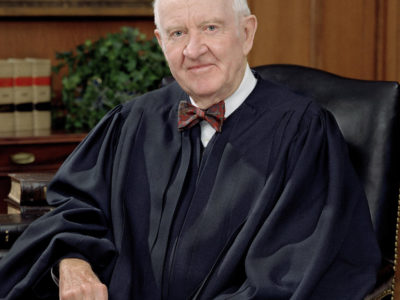The Libertarian Critique of Trump’s “Schedule F”
As it turns out, you can hate BOTH government regulation and Trump’s assault on the “deep state.”
Skepticism about regulation is part of the Cato Institute’s DNA. Cato is the country’s leading libertarian think tank. But Cato is no friend of Schedule F, the centerpiece of Trump’s attack on the bureaucracy during his presidency. Schedule F, which is also a core part of Project 2025, aimed to take thousands of senior officials out of the Civil Service system so they could be replaced by Trump loyalists. Trump initial effort was repealed by Biden, but he has promised to try again. But Thomas Firey, the editor of Cato’s Regulation magazine, says “reinstating Schedule F would likely prove disastrous — especially for people who truly want to see the bureaucracy downsized.”
For those who aren’t familiar with the libertarian movement, there are basically two kinds of libertarians. There are the more cerebral, classic libertarians, who believe in some combination of free market economics, individual freedom, and skepticism of government. Then there are the ego-driven libertarians. They’re fans of the novelist Ayn Rand, an author whose appeal is otherwise limited to rebellious teenagers fantasizing about their future greatness. The Ayn Randers oppose government because they believe that truly superior human beings – themselves – should be unfettered by laws and regulations. The first kind of libertarians are represented by free market economist Milton Friedman; the second kind are represented by tech bros. Cato is in the first camp.
Back to the libertarian critique of Schedule F. Firey’s writings on the subject are worth a read (here and here). According to Firey, “Schedule F and other ‘deep state’ plans would be little more than gimmicks, though they would likely produce serious problems for the implementing president and the nation.” The reality, he says, is that “Injecting thousands of short-term, inexperienced, presidentially appointed mid-level managers into this convoluted dynamic would not change career civil servants’ incentives.” Nor would it change “the statutes, directives, orders, guidelines, rules, procedures, and judicial decisions that those workers are incentivized to follow.” The main effect of Schedule F would be gridlock rather than policy change: “Schedule F would bungle and bog down the administrative state.” After all, Firey says, “cumbersome processes are seldom improved by becoming outright gridlocked; instead, they need to be either improved or removed.”
Here’s Firey’s conclusion:
Reforming the administrative state and rewriting statutes and regulations is hard work, requiring careful policymaking, talented people, and consensus-building. It’s not the product of gimmicks like Schedule F and databases of inexperienced people. That’s why reinstating Schedule F would likely prove disastrous — especially for people who truly want to see the bureaucracy downsized.
What Firey would really like to see is deregulation by Congress. He’s smart enough to realize that installing inexperienced ideologues in the executive branch won’t accomplish anything useful and would only make it harder to implement deregulatory policies. Not surprisingly, libertarians like Firey have had a hard time finding a place for themselves in the MAGA-era conservative movement.
Reader Comments
3 Replies to “The Libertarian Critique of Trump’s “Schedule F””
Comments are closed.







Disappointing, to put it mildly, to see a writer get so much wrong. Ayn Rand (novelist and philosopher) continues to appeal to millions of intelligent adults (not “rebellious teenagers”) for her advocacy of government limited to protecting individual rights (thus, she does not “oppose government”). She believed that everyone should be subject to (not “fettered by”) the same rule of law in defense of rights, but not regulations (the hallmark of progressivism). Anyone, friend or foe, of Rand, who has read her works, will know that this article presents a caricature of her philosophy.
Trump, the tech bros, and the henchmen who support them don’t want to deregulate the government. They want to destroy it. Gumming it up isn’t a side effect of Schedule F; it’s the point.
This is Bond-villain stuff come to life. Why has Elon Musk has aligned himself with Trump, taken over Twitter, circled with globe with internet-controlling satellites, and become the world’s wealthiest proponent of crypto?
To be powerful above nations.
They want to establish a trans-sovereign, planetary city-state. It’s positively medieval.
Trump offers the world greater hope for peace and prosperity, far more so than Kamala. Because of God, Trump remains alive and well and likely to defeat Kamala. Let all the people say Amen !!!